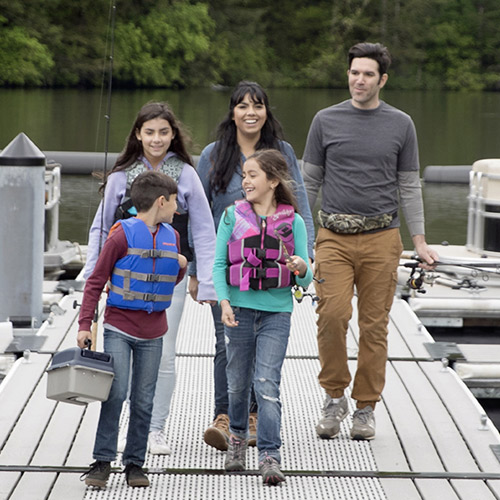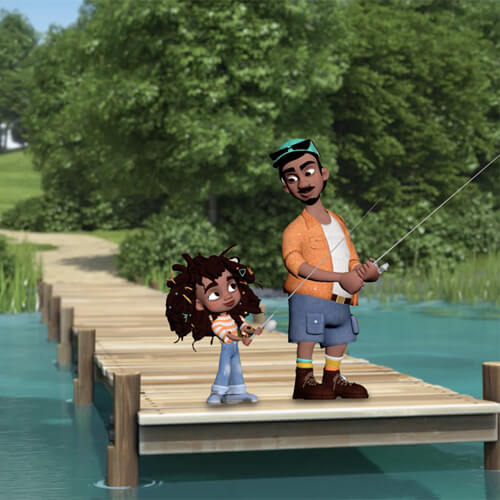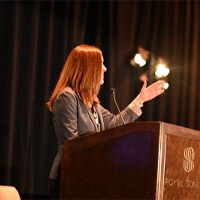Best Practices Education Workbook
Created in 2000 by RBFF’s Education Task Force for state fish and wildlife agency aquatic educatiors, and updated in 2010, Best Practices represents the best knowledge available for program planning, development and implementation, professional development, program evaluation and educational program research about teaching boating, fishing and stewardship of aquatic resources.
Best Practices Workbook
for Boating, Fishing and Aquatic Resources Stewardship Education
RBFF’s Best Practices Workbook For Boating, Fishing, and Aquatic Resource Stewardship Education (PDF, 17MB) is available to help with your fishing and boating events.
Best Practices is designed to provide clear and actionable tools for aquatic educators that are research-based and tested. Best of all, its FREE!
Download the Best Practices Workbook by sections:
Introduction (PDF, 3.3MB)
What Are Best Practices?
How Can Best Practices Help You?
Need for Best Practices
How to Use This Workbook
Education Versus Communication
Behavior Changes
Where are the Footnotes and Citations?
Elements of Effective Education Programs (PDF, 6MB)
Chapter 1. Plan Ahead for Success
Chapter 2. Building Your Program
Chapter 3.Well-Trained Instructors
Chapter 4. How Do You Know if It’s Working? Evaluation! (Companion guide also available -Best Practices Guide to Program Evaluation - PDF, 12.6MB)
Specific Opportunities to Enhance the Program (PDF, 7.4MB)
Chapter 5. Expanding Your Reach: Diverse Audiences
Chapter 6. Expanding Your Reach: Persons with Disabilities
Chapter 7. Enhancing Boating Education Programs
Chapter 8. Enhancing Fishing Education Programs
Chapter 9. Enhancing Aquatic Stewardship Education
Chapter 10. Let Research Help
Glossary (PDF, 102KB)
Appendix A. A Brief History of Environmental Education (PDF, 112KB)
Appendix B. Worksheets (PDF, 176KB)
Appendix C. General Logic Model (PDF, 67KB)
For more information, or to provide feedback on this project or any of the deliverables, please contact RBFF or call 703-519-0013



